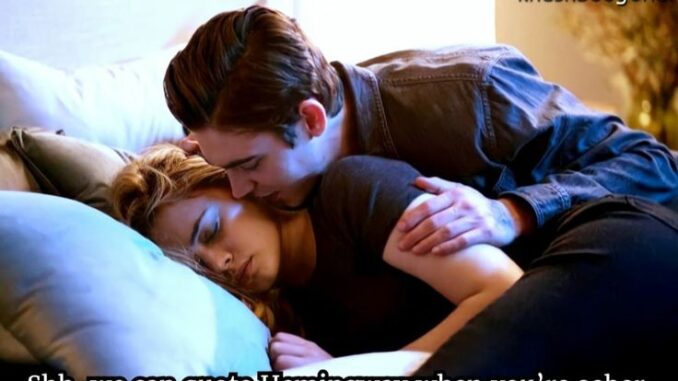
After We Fell, the third chapter of the After saga, love becomes less about passion and more about survival. It’s the film where everything breaks—trust, stability, identity—and yet, somehow, everything matters more than ever. For Tessa and Hardin, this isn’t just another storm in their turbulent love story. It’s the storm that might finally destroy them—or transform them for good.
What sets After We Fell apart from its predecessors isn’t just the elevated drama or the increasingly adult stakes—it’s the raw emotional unraveling. This is where we stop romanticizing toxicity and start asking the hard questions: Can you build a future with someone who keeps burning the present? Can love heal you if it’s also the source of your pain?
From the very first frame, After We Fell plunges us into tension. Tessa is preparing to move to Seattle, an opportunity that symbolizes freedom, career, and a future she’s carved out for herself—not one handed to her by a man. But for Hardin, this is betrayal. He sees her independence as a threat, not a triumph. His reactions are not only immature but painfully revealing: Hardin doesn’t just love Tessa—he fears losing her because deep down, he doesn’t believe he deserves her.
And that’s where the story pierces.
Hardin’s insecurity, masked in anger and control, isn’t new. But in After We Fell, it becomes unbearable. We watch him spiral—from jealousy about Tessa’s colleague, Robert, to resentment toward her dreams. His love is absolute but suffocating, and for the first time, Tessa truly questions if it’s worth it.
Hero Fiennes Tiffin delivers a hauntingly conflicted Hardin. There’s a desperation in his eyes that no apology can fix. His vulnerability flickers beneath every outburst, making it impossible to fully hate him—even when you want to. And Josephine Langford’s Tessa? She’s the soul of this film. Her pain is quieter, but no less real. She’s exhausted. She’s torn. She’s growing up, and the man she loves may not be growing with her.
One of the most heartbreaking scenes is when Tessa says, “You can’t love me like this.” It’s not a scream. It’s a whisper. And it lands like a knife. Because for the first time, she’s not fighting back—she’s stepping away. It’s a subtle but seismic shift in their dynamic. Tessa, once the girl who would chase Hardin into hell, begins to see the fire for what it is.

This film also dares to explore family trauma, particularly on Hardin’s side. The shocking revelation about his parentage could’ve been a soap opera twist, but instead, it becomes a window into his emotional instability. He’s not just reacting to Tessa—he’s reacting to abandonment, betrayal, and generational wounds he’s never healed. In that sense, After We Fell isn’t just a romance—it’s a character study of a young man emotionally drowning in the name of love.
And then there’s Tessa’s own trauma. Her strained relationship with her alcoholic father resurfaces, not for melodrama, but as a parallel to her emotional codependence with Hardin. Tessa wants to fix people, to save them. But this time, she learns that some people must save themselves first—and that loving them doesn’t mean losing yourself.
Visually, the film embraces a darker, moodier tone than its predecessors. Shadows, storms, and cityscapes reflect the emotional turbulence. But beneath all the aesthetic beauty is a core question beating like a bruised heart: When does love stop being worth the pain?
Fans of the franchise have often romanticized Hardin and Tessa’s chemistry—and there’s no denying the pull between them. Their physical connection is still electric, charged with longing and danger. But After We Fell finally asks fans to sit in discomfort. It doesn’t offer easy resolutions. It shows the cracks in real time.
And that’s what makes this installment so powerful.
It’s not about who’s right or wrong. It’s about what happens when two broken people try to build something whole. It’s about the ache of loving someone who makes you feel alive—but also small. It’s about realizing that sometimes, the most loving thing you can do is walk away.
